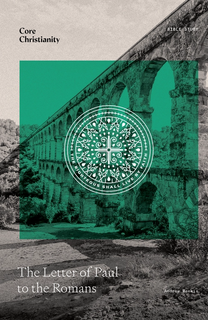“Did I give my grandmother cancer?” One of my students asked this as tears began to well up in her eyes. My heart broke as I realized she thought God was punishing her for sin and lack of faith by making her grandmother sick. What a horrible thought to live with!
This question is one I have heard many times from a variety of people. When horrible things happen to us or to the people we love, is God punishing us? This is a deeply perplexing and troubling question. The thought that our sin might have caused a calamity or hardship can be spiritually and emotionally crippling. Here are three biblical truths that encourage and comfort us when we begin to wonder if God is punishing us.
1. Bad things happen to good people.
It may seem odd to claim that this truth brings encouragement and comfort, yet it is extremely good news! Hardships and trials are part of life for everyone, good or bad, Christian or not. If something terrible happens in your life, it does not mean that God is punishing you for specific sins. Perhaps the clearest place we see this truth is in the story of Job.
Job was a righteous man. The Bible describes him as “blameless and upright, one who feared God and turned away from evil” (Job 1:1). He was a devout believer, yet still, God allowed Satan to put him through incredible suffering and pain. Job’s friends believed that God was punishing him, but Job knew he was innocent. Understandably he wanted to get answers from God. Why had his home, family, and good health been taken from him? Was he being punished? Or was God unjust to allow these evils to befall a righteous man?
Neither Job nor his friends get the satisfaction of an answer. Instead, in one of the most terrifying and awe-inspiring moments in the Bible, God appears in a whirlwind and bellows, “Who is this that darkens counsel by words without knowledge? Dress for action like a man; I will question you, and you make it known to me” (Job 38:2-3). What follows this challenge is a 126-verse verbal smack-down. God asks question after question, demonstrating his sovereign power as creator of the universe. Through all of this, he never once explains to Job the reason for his suffering.
By the end of this barrage Job is left with one response: to trust in God’s sovereign goodness. God doesn’t tell Job, and he doesn’t tell us why we suffer. It is presumptuous to demand that he do so. Instead, we ought to respond to God the way Job did: “I have uttered what I did not understand, things too wonderful for me which I did not know… I despise myself and repent in dust and ashes” (Job 42:3-6).
When we suffer, we should come humbly before God, trusting that he knows what he’s doing. Bad things happen to good people, and suffering is not always the effect of our sin. We should not claim to know the ultimate reason behind the suffering in our lives or the lives of others. This is encouraging when we begin to think that our sins caused bad things to happen.
2. The punishment for your sins has already been poured out on Christ.
If you are a Christian, then God never punishes you. How can you be sure? Christ has already been punished for your sins. For all of your wrongdoing, God poured out his wrath onto Jesus as he hung on the cross. Romans 8:1 states definitively “There is therefore now no condemnation for those who are in Christ Jesus.”
As believers, we are united to Christ when we put our faith in him. When this occurs, we trade our sinful life for his perfect one; he takes our sins and in return gives us his righteousness. What an incredible deal! When God looks at us now he sees the flawless obedience of Christ; therefore he will never condemn and punish us.
If we do not remind ourselves of this good news, we can very quickly be crushed under the weight of guilt. When we feel confused or bewildered by the hurts and anguishes of life, we desperately want to know why. Satan likes to swoop in at this moment and whisper in our ears “it’s your fault…your sin caused this!”
When we are tempted in this way, we should run to Christ to see these thoughts for the despicable lies they are. Christ died for your sins. Christ rose from the grave. Christ is interceding for you. Therefore, “neither death nor life, nor angels nor rulers, nor things present nor things to come, nor powers, nor height nor depth, nor anything else in all creation, will be able to separate us from the love of God in Christ Jesus our Lord” (Romans 8:38-39). What great assurance and hope we have in Christ!
3. God is a good Father who disciplines his children.
When life is difficult it can be easy to doubt that God loves us. How can he be loving if things in our lives are going wrong? When we experience hurt, pain, and suffering we must remember that God is our Father. Like any good Father, God disciplines and chastises us. Proverbs 3:12 tells us, “the LORD reproves him whom he loves, as a father the son in whom he delights.”
Unlike punishment, which flows out of wrath, discipline flows out of God’s love for us. Sometimes God lets us experience the consequences of our sins for our benefit. He wants us to mature and grow in holiness as a result. Hebrews 12:10-11 says that God “disciplines us for our good, that we may share his holiness. For the moment, all discipline seems painful rather than pleasant, but later it yields the peaceful fruit of righteousness to those who have been trained by it.” God never punishes his children; his love and grace never lessen or are taken away, but he does chastise and correct us. He does this so that our sin might be removed as we become more and more like our savior Christ.
These three truths quiet our souls, assuaging our anxiety and guilt when we feel like our sins caused bad things to happen. When our hearts condemn us, we must cling to the reality that God has forgiven us once and for all in Christ. This reality frees us to accept and even delight in God’s correction and discipline.






